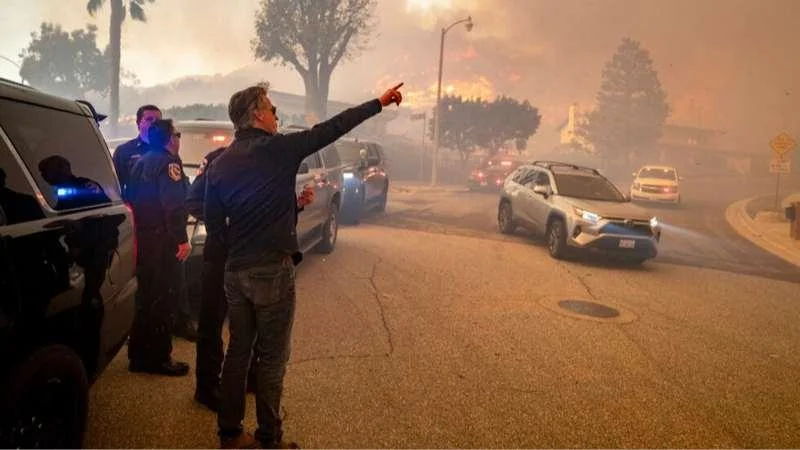The Southern California wildfires, including the Palisades Fire, have prompted an emergency proclamation from Governor Gavin Newsom for Los Angeles and Ventura counties. These fires are causing significant disruptions, affecting air quality, power supply, and access to homes and businesses. Employers in the region must adhere to regulations concerning wildfire smoke exposure, employee compensation during disasters, and notification requirements for new hires.
Cal/OSHA enforces rules under the Protection from Wildfire Smoke regulation. Employers need to comply unless their worksites are fully enclosed or if employees' exposure is limited. The regulation applies to both indoor and outdoor workers whose shifts involve more than one cumulative hour of exposure.
Employers must monitor the Air Quality Index (AQI) for PM 2.5 levels using resources like the U.S. Environmental Protection Agency's AirNow website. If AQI exceeds 150, employers should relocate workers to safer areas or offer respiratory protection like N95 masks when feasible. When AQI surpasses 500, respirator use becomes mandatory with proper fit testing required.
Regarding employee pay during wildfires, nonexempt employees are paid only for hours worked unless special reporting time pay rules apply. In emergencies like wildfires where work is halted by external causes or civil orders, additional wages may not be owed if employees are sent home early.
Exempt employees receive their standard salary if they perform any work within a week affected by wildfires but may not be paid if no work occurs throughout that week due to disaster-related closures.
California's Employment Development Department allows affected workers to file unemployment insurance claims without a waiting period due to the Governor’s Emergency Proclamation.
Effective January 1, 2025, under California's Healthy Workplaces law, agricultural workers can use sick leave if workplaces close due to emergency conditions such as smoke or flooding. Employees can also use sick leave for health issues exacerbated by wildfires or preventative care needs related to these events.
Time off policies regarding vacation use remain at employer discretion but should be consistently applied across all staff members.
Employees needing time off due to school closures caused by wildfires might qualify for unpaid leave under California’s school activities leave policy applicable at workplaces with 25 or more employees.
In response to recent emergencies like avian flu outbreaks, amendments in California's Labor Code now require employers in affected areas such as Los Angeles and Ventura counties to inform new nonexempt hires about emergency proclamations impacting their health and safety within thirty days after January 7th of this year.
Given ongoing developments with these wildfires, employers should seek legal advice on pertinent matters during this challenging period.

